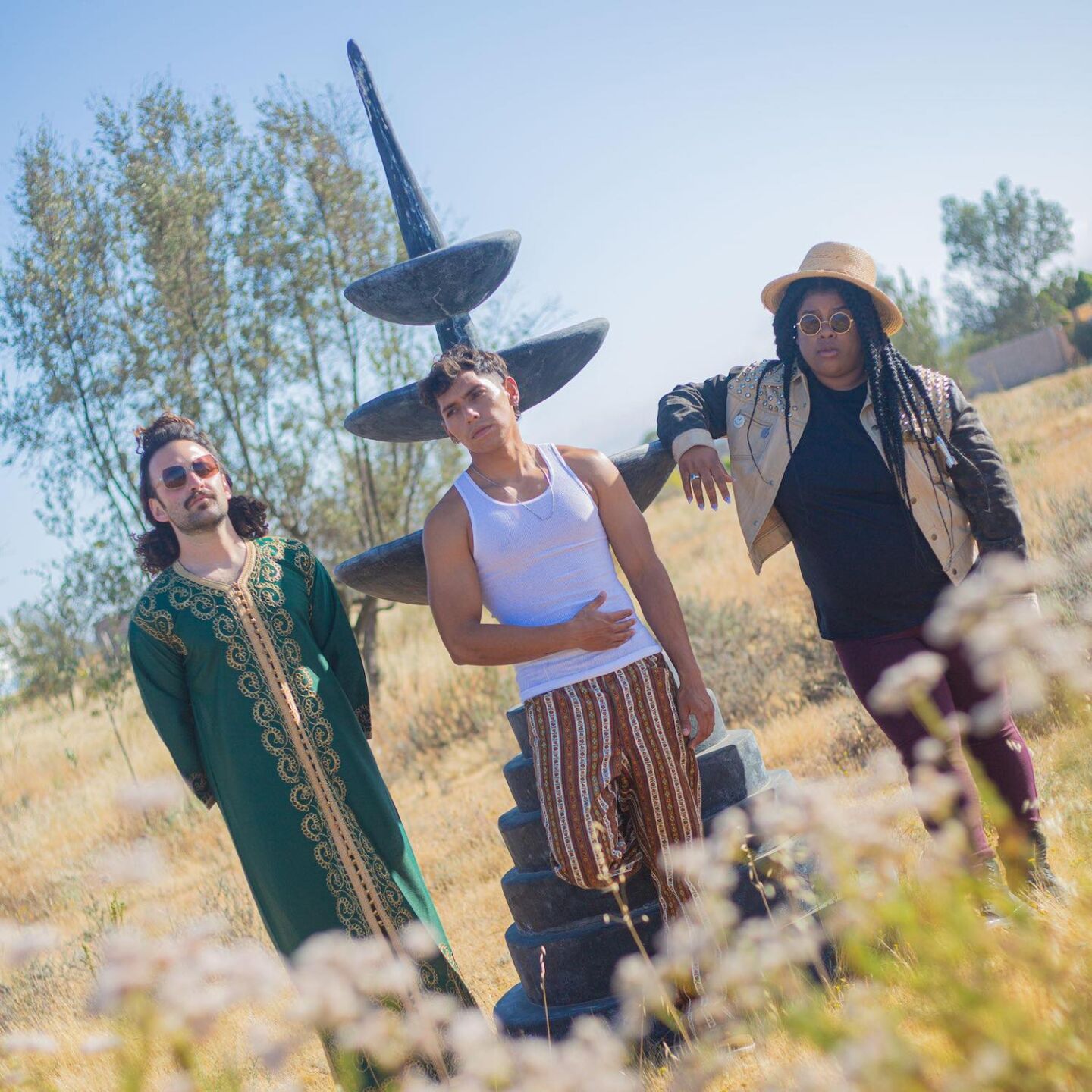
tulengua
Kelsey Bair
Tulengua was a concept. When the cross-border hip-hop group began back in 2016, their ambitions stretched beyond the simple idea of starting a band. They wanted something more. Something without a fixed lineup—a constantly evolving and growing entity, reflecting the culture and collaboration along the dividing line between two nations.
“The idea was that it was going to be more of a collective, people from both sides of the border coming together to make music under one name—producers and rappers,” says tulengua (the group prefers a lowercase t) emcee/vocalist Alan Lilienthal. “It wasn’t super clear what it was going to be, but I knew what I wanted it to feel like. It was around the time that Trump won, and there was all this buildup of energy around the border and immigration, as well as some pretty heavy things that I went through. So it became this vehicle for talking about these things happening on the border.”
In spring 2020 the group had congealed around the lineup of Lilienthal, his co-emcee Amari Jordan and producer Jaime Mora. Their bilingual/bi-national hip-hop solidified on their debut mixtape Baja Funk, offering a showcase for an eclectic sound that bounced from g-funk to soul to crackly boom bap with lyrics in both English and Spanish. The trio had found their groove in an intimate, interpersonal collaboration that grew from their own friendship.
But as the first pandemic lockdown began, live music ground to a halt. Travel between the U.S. and Mexico became more complicated just as this permanent iteration of tulengua built up steam with the release of their second LP LOWKEYBANGERSVILLE. The three musicians—Lilienthal and Jordan based in San Diego, and Mora in Tijuana—weren’t able to get together to tap into the chemistry that drove their unique musical hybrid. At that time Jordan was also pregnant, and played it safe for the sake of her own health.
Though the group thrives on being in the same room and playing off of one another, they made the most of their resources and after some time spent regrouping, began to build songs via files sent back and forth among the three of them. The product of that lockdown creativity, Lowkey Reduced is another creative shift, balancing trap, funk, psychedelia and lo-fi sounds that represent a unique era for the group.
“We like to make music together in the flesh,” Lilienthal says. “Once the border was open and once Amari’s son was a little bit older, it started reviving new music. Lowkey Reduced we put out almost to close a chapter, and now we can move on.”
Tulengua have now written more material and mapped out their next handful of releases, in large part because Lilienthal, Jordan and Mora are able to share the same space and reignite that collaborative spark once again. Operating as a unit, they’re already moving on to the next phase. The pandemic might have slowed their output—just as it did with other artists—but they’ve only grown closer in the process, both as collaborators and comrades.
“At this point of tulengua, I’m super comfortable,” Jordan says. “I know we’re going to go higher, I’m just super happy to be playing with the people that make me the happiest.”
PARTNER CONTENT
Tulengua perform at Music Box on July 27.


















